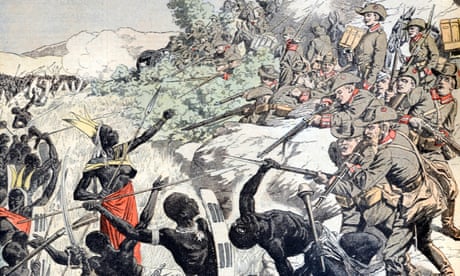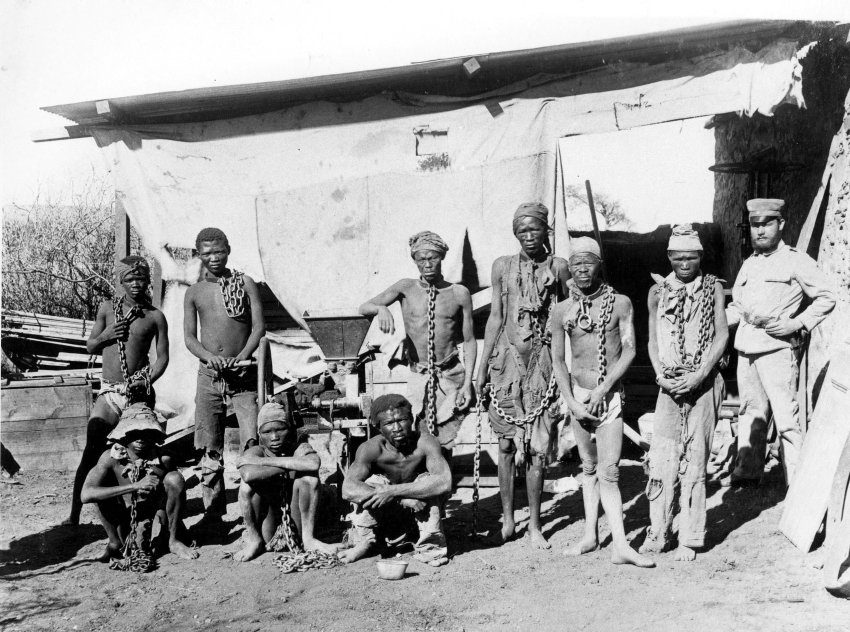The first Holocaust: forgotten German genocide in Namibia
The atrocities committed by Imperial Germany in modern day Namibia are widely regarded as the 20th Century's first genocide. However, for more than a century the systematic murder of tens of thousands of men, women and children by German troops has been largely forgotten in much of Europe and Africa. However, efforts by Berlin are raising the international profile of the massacres of the Herero and Namaqua peoples, and are bringing justice for their descendants a step closer. Negotiations between between the governments of Germany and Namibia over reparation payments are expected to be completed and result in a formal apology by this summer.
In Berlin, the Deutsches Historisches Museum unveiled a major new exhibition about the country’s bloody colonial history this winter. It features letters from missionaries expressing their concerns about concentration camps and killings in Germany’s south-west African colony, as well as artefacts from the colonies themselves.
In 1884, as European powers scrambled to carve up Africa, Berlin annexed a colony on the south-west coast of the continent. Land was confiscated, livestock plundered and natives were subjected to racially motivated violence, rape and murder. In January 1904, the Herero people rebelled against the tyrannical invaders. More than a hundred German civilians were killed. The smaller Nama tribe joined the uprising the following year.
The German colonial masters responded without mercy, tens of thousands of Herero were driven into the Kalahari Desert, their wells were poisoned and food supplies were cut. Soldiers were ordered to shoot 'any Herero, with or without a rifle, with or without cattle'.
Those who had survived were rounded up and incarcerated in concentration camps, where they were beaten and worked to death in squalid conditions. Half of the total Nama population were also killed, dying in disease-ridden death camps such the infamous site on Shark Island, in the coastal town of Lüderitz. By 1908, only 16,000 remained.
The genocide has caused tensions throughout the 20th Century in Namibia. Farmers descended from the German colonists still own land seized from locals. The Herero who make up 10% of the country's population live in overcrowded, overgrazed and overpopulated reserves, while their original fertile pastures are occupied by descendants of the perpetrators of the genocide against their ancestors.
Germany was forced out of the colony in 1915, by British and Dominion troops from the Cape Colony. The killings in the German colony are seen by some historians as important steps towards the Holocaust in Europe during the Second World War. It is imperative to see Germany’s history in Africa as continuous with its better-known chapters in the 30s and 40s. In Africa, Germany experimented with the murderous methods it later applied during the Third Reich. There are numerous parallels between the fate of the Herero and Nama and that of European Jews. Ideas and techniques applied in the Holocaust have their origins in German East AfricaStudying Germany's dark colonial history demonstrates that the Holocaust was not an isolated incident in the history of an otherwise enlightened people, but suggests the far more uncomfortable thesis of consistency in Germany's foreign and domestic policy.
 |
| German colonists fire on Herero tribesmen |
 |
| Nama prisoners |
Comments
Post a Comment